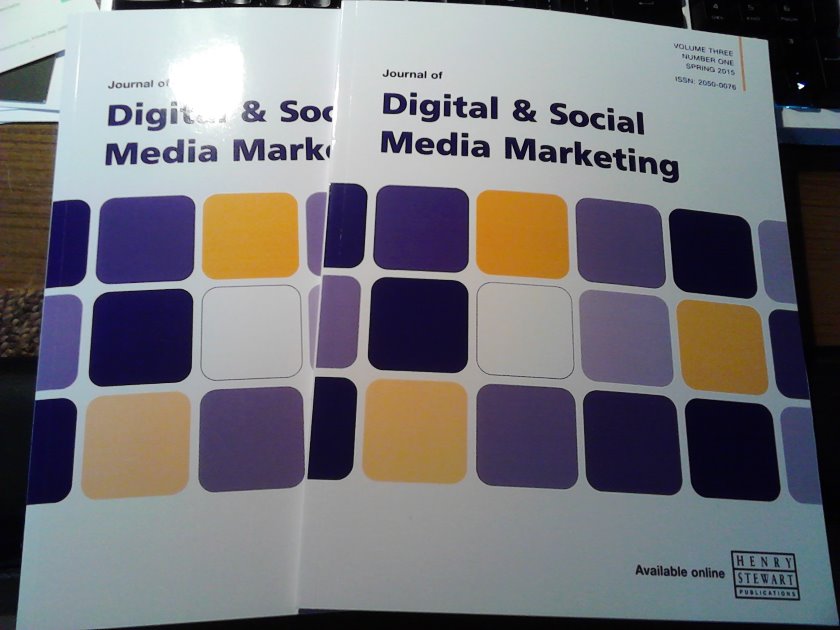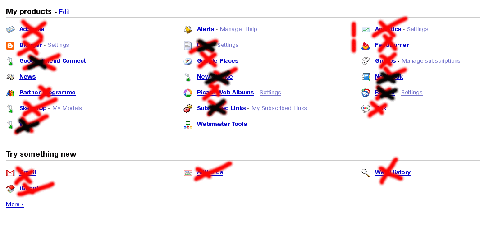What a great post today from Eric Karjaluoto on his blog about Macs v. PCs.
He outlines his gripes on a number of fields and doesn’t believe Apple holds a great advantage any more.
I have to say I agree with him.
On his Facebook, I wrote the following.
Well said, Eric.
What has annoyed me for years is that whenever one of our PCs throws a wobbly, all the Mac evangelists swarm over my Tweet and say, ‘Buy a Mac,’ more quickly than you’d get a Sarah Palin endorsement at an American tea party rally.
Yet whenever I complain about a Mac bug, the Mac evangelists are silent. Nowhere to be seen.
I probably complain equally about the platforms relative to the amount of time I use on each, and the pattern above always holds true.
The Mac brigade really has got to an extreme, hoodwinked by the marketing.
Like you, in 1995 or thereabouts, I would swear black and blue about the superiority of the Mac. Not any more.
Even as early as 2000 I began noticing the memory limits on Macs, on some programs where Windows could handle them better at the limit.
In 2011 these two are as different as Buick and Chevrolet. I no longer care which is which, but the whole Mac evangelism is as annoying as catching a cab with a religious taxi driver who tries to convert you during the ride. If anything, the extreme Mac fans (not the everyday ones) are hurting their brand by coming across as tossers.
All I can say is that the virus attacks on the Mac have been rare, but with the larger Windows’ user base, I’m not on hold to Apple Australia for two bloody hours because I haven’t been able to solve the problem myself. Do I save time using Macs? On the whole, probably not.
I’m not saying Windows is superior. Like Eric, I have no real preference. They are tools, and as long as they get the job done, that’s OK by me. If they mess up, I feel I should complain—or at least record it so others who face the same issue can feel reassured they are not alone, and they might even be able to read of a resolution in the comments or a follow-up post.
In part, that’s why I document my glitches here (the other part is catharsis). Many a time I have been able to go back to my blogs and repeat the instructions.
But while most brands could do with a bit of evangelism, I have to say that the fairly unfounded evangelism by the extreme fans is annoying. That goes for any product or service, not just Apple.
Mac users can justifiably claim superiority over the virus issue, but I don’t see a huge gap on other things any more.
Brand evangelism is like any other type of endorsement: when it gets to an extreme, it has the opposite effect.
In fact, the Apple name no longer has the halo effect it did for me in the 1970s, 1980s and 1990s.
While I had my tongue in my cheek for some of what I wrote on Eric’s Facebook, the analogies aren’t too far off.
Yes, Mr Auckland Taxi Driver, it was annoying when you told me about the descriptions of heaven in the Koran for five minutes after my cab ride. I respect your religion, and I respect your holy book, but there’s a time to take a hint and let your passenger out of the car because, well, you’ve arrived at the destination. (It’s not restricted to Islam—a friend recently told me of her experience with a Christian taxi driver. I’m sure there are examples from every religion in the world.)
Equally, the blanket ‘Buy a Mac’ is an unhelpful response to a complaint when I know full well the Mac has trouble with a similar issue.
From a brand point-of-view, there’s not much Apple can do.
It needs those big profits and premium pricing for the sake of its shareholders, and to maximize its return on investment. They are more stylish machines on the whole. And we are almost conditioned to pay a little more for something smart-looking, and to heck with whatever’s on the inside.
For years, it’s relied on snobbery—which was, as I said, once justified. And the failure of growing the Mac line under John Sculley is still fresh in the leadership’s mind. Apple is convinced that the current path is the right path for its brand.
And while it’s relied on snobbery, none of its communications are really that snobby, at least down here. In fact, they are quite down-to-earth and cleverly done. Apple just manages to elicit that emotion.
The key to letting folks know the truth is simply consumer awareness and education—and, on that note, some of the Windows-based manufacturers are doing a less convincing job. They only have themselves to blame.
The landscape has changed so that we peasants now can buy things that look reasonably cool and perform as well.
Yet so few have managed to be consistent enough in their branding and marketing to say, ‘We chart our own path, and our machines are excellent.’
It sounds like a huge opportunity to me, especially if the evangelists’ din annoys.






I appreciate that you have not equated PC as automatically meaning Windows as so many others do. Back in the day, PC meant “personal computer”… that’s it.
Apple is the only big OS player that has proprietary hardware (and is rather consistently proprietary for all their machines, mobile too). Neither Windows or Linux requires such, although some Unix nerds claim Microsoft spiked the punch at the hardware party as far as drivers.
I dunno. Again, I’m a Linux user. The various Linux communities have their evangelists, too (Gentoo immediately comes to mind) and would fain call me a noob. There’s a newcomer segment that is starting to think Ubuntu = Linux… ehhh, blah blah blah, long story for a post of my own (parts that are probably in existing ones).
I mean, I say, “Hey Eric, Linux runs faster for me most days than Windows. So your argument for or against Linux would be…?”
…but I don’t want another explanation that boils down to “Linux is too hard and complicated”… that’s just not quite so as it used to be
You should leave a message on Eric’s blog, Jak! But I think it’s more likely that, at a design agency, the tools just aren’t available. I know Linux has equivalents for some of the Adobe suite, but we need the power of something like InDesign.
Not going so well so far, Jack; he insists that because the term of PC meaning Windows is the popular nomenclature, he’s “using it to keep things easy.” (his words)
I responded by saying I didn’t see how five more letters was therefore harder (more so since it was specific and acknowledged Linux to a degree), and (hope you don’t mind) that at least you were willing to afford me that consideration.
UPDATE (again): I guess I can accept a “Fair enough.”
Must pop over to have a gander!